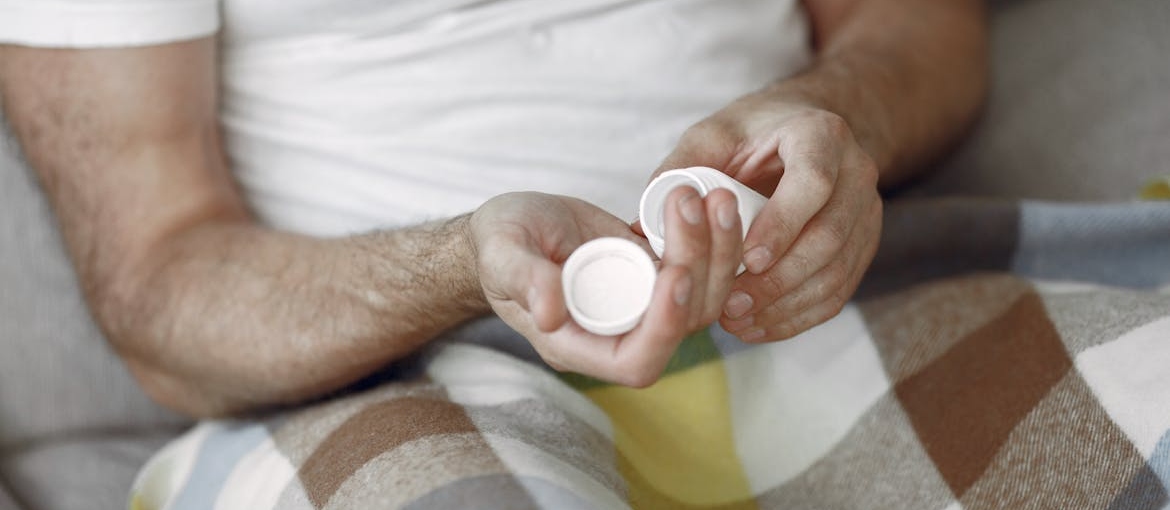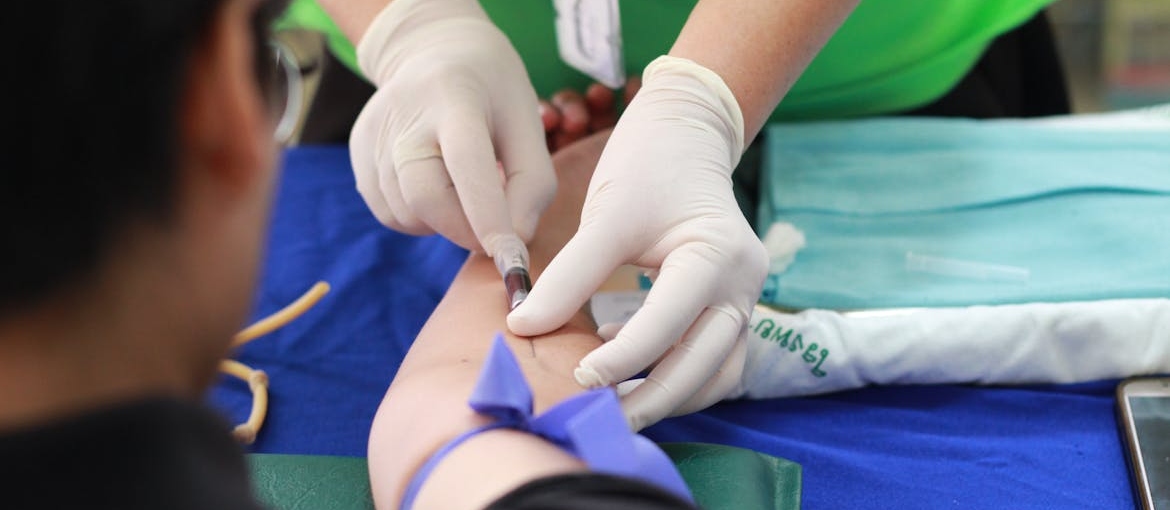Stopping Lexapro can be harder than most people expect. Your body and mind get used to the medication, and when it’s gone, you might feel off balance. Lexapro withdrawal symptoms can include anxiety, mood swings, dizziness, or trouble sleeping. These changes can feel overwhelming, especially if you don’t know what’s happening. You’re not alone, and help is available. A West Virginia treatment center can guide you through this process safely, helping your body adjust at a steady pace. Recovery isn’t about rushing—it’s about patience and the right support. With proper care and understanding, you can regain stability and feel like yourself again. Each step forward matters, and the right plan can make a big difference in how you heal and move forward
What Causes Lexapro Withdrawal Symptoms
When you stop taking Lexapro, your body must adjust to a drop in serotonin levels. This change affects your mood, sleep, and energy. Lexapro withdrawal symptoms can appear quickly if the dose is reduced too fast. Many people feel confused about what’s happening and worry they’re relapsing. The truth is, your brain is trying to find balance again. Knowing what causes these symptoms helps you handle them with care and patience.

How Lexapro Affects the Brain and Body
Your brain depends on serotonin to keep your emotions steady. Lexapro raises serotonin levels over time, helping you feel calmer. When you stop taking it, those levels drop, and your brain reacts. These reactions cause what’s known as lexapro side effects withdrawal symptoms. Understanding them can make the process less frightening. Here’s what happens during withdrawal and how it can affect your body:
- Serotonin fluctuation: The brain struggles to adjust to lower serotonin levels.
- Sleep disruption: Many experience insomnia or vivid dreams during withdrawal.
- Mood imbalance: Emotional ups and downs are common while your system resets.
- Physical reactions: Dizziness, headaches, and nausea often appear early on.
Why Stopping Suddenly Triggers Withdrawal
Stopping Lexapro without a plan can lead to intense symptoms. Your brain has adjusted to daily doses and doesn’t adapt overnight. This is where a residential treatment center West Virginia patients trust becomes helpful. Professionals create a tapering schedule and monitor your response safely.
If you stop suddenly, your body might respond with panic, confusion, or exhaustion. Gradual reduction gives your nervous system time to stabilize, lowering the risk of relapse or emotional crashes. Controlled tapering also helps track how your body reacts to smaller doses, making it easier to predict and manage discomfort. You don’t have to face this on your own—structured help makes recovery safer and smoother.

Risk Factors That Make Symptoms Worse
Not everyone experiences Lexapro withdrawal symptoms the same way. Some people feel mild discomfort, while others struggle for weeks. Those with anxiety, depression, or substance use issues often face more severe reactions. A dual diagnosis treatment West Virginia facility can help if you have co-occurring conditions.
Your withdrawal may worsen if you stop suddenly, have taken high doses, or used Lexapro for years. Stress, lack of sleep, and poor nutrition also make symptoms stronger. Medical professionals can help you plan a safe taper that respects your mental and physical needs. Getting care early prevents setbacks and supports lasting recovery.
Common Lexapro Withdrawal Symptoms and Their Timeline
Lexapro withdrawal symptoms vary from person to person, but they usually follow a clear pattern. The first days may feel rough, but they don’t last forever. Your brain gradually adapts to the change, and your mood starts to balance again. The more you know about the stages, the better you can prepare. Let’s look at the symptoms, emotional effects, and how long they usually last.
Physical Symptoms to Expect
Physical discomfort is often the first sign that your body is reacting to the medication change. These symptoms can be unpleasant but rarely dangerous. Recognizing them early helps you stay calm and take care of yourself. Here’s what to watch for and how they might feel in daily life:
- Headaches: Common as serotonin levels shift.
- Dizziness: You may feel off balance or lightheaded.
- Nausea: Stomach upset often occurs in the first week.
- Fatigue: Low energy is normal as your body adjusts.
- Sweating: Increased body temperature and night sweats can appear.
- Brain zaps: Sudden electric shock sensations in the head or neck.

Emotional and Psychological Effects
The emotional side of Lexapro withdrawal can be confusing. Your feelings may swing between sadness, irritability, or even panic. This happens because your brain chemistry is changing, not because you’re “broken.” It’s important to stay patient with yourself and seek help when needed. Here are the most common emotional effects:
- Anxiety spikes: Nervousness or tension may increase temporarily.
- Crying spells: Emotions can surface more easily than usual.
- Irritability: Small frustrations might feel bigger than they are.
- Low motivation: Many people feel unmotivated or detached.
- Mood swings: Rapid emotional changes are common early on.
- Sleep changes: Vivid dreams or insomnia may appear.
Lexapro Withdrawal Timeline: What Happens Week by Week
Lexapro withdrawal symptoms don’t last forever, but they often come in waves. Knowing what to expect helps you prepare for each stage. Many people wonder how long do Lexapro withdrawals last, and the answer depends on dosage, time of use, and overall health. A marijuana rehab center with medical staff can support safe tapering if symptoms feel severe.
In the first week, dizziness and headaches are common. Around weeks two to four, emotional instability and fatigue peak. By weeks five to six, most symptoms fade, though mild anxiety or sleep problems may linger. Staying connected to a care team helps track progress. Over time, your brain finds its balance again, and your energy slowly returns. Patience and consistency make recovery possible.
Treatment and Rehab Support for Lexapro Withdrawal
Professional care makes Lexapro withdrawal safer and less overwhelming. Medical teams understand how your body reacts and guide you through tapering without sudden shocks. The right support prevents emotional crashes and restores balance gradually. Whether you’re tapering for the first time or have tried before, rehab centers offer structure, therapy, and medical attention that promote long-term recovery.
Medical Detox and Supervised Tapering
A proper tapering plan is essential to avoid serious side effects. A drug rehab Huntington WV facility can design a schedule that matches your needs. Detox focuses on reducing medication safely while supporting your mood and body through the change. Doctors adjust doses slowly and monitor your sleep, energy, and mental health.
Tapering under medical supervision reduces the risk of relapse or depression returning. You’ll have access to mental health specialists, safe medications if needed, and ongoing counseling. It’s the most effective way to learn how to stop Lexapro withdrawal symptoms before they worsen. Your care team can also recommend coping strategies and lifestyle habits to stabilize your progress.

Rehab Programs That Address Antidepressant Withdrawal
Rehab programs help you rebuild structure and regain emotional stability after withdrawal. Many facilities accept insurance, including Humana rehab coverage, which can ease the financial burden. In these programs, you’ll learn how to wean off of 10mg Lexapro safely with medical oversight.
Treatment combines therapy, medication management, and daily support. Structured environments encourage accountability while offering comfort during difficult days. Inpatient or outpatient options are available, depending on your needs. These programs also help you recognize the emotional impact of withdrawal and rebuild healthy coping skills. Working with professionals who understand antidepressant recovery makes a big difference in preventing relapse and promoting stability.
Therapies That Support Long-Term Stability
Therapy plays a key role in healing after withdrawal. Many centers include individual therapy for addiction to address emotional triggers and habits that may return during recovery. Therapists help you explore your feelings, manage anxiety, and rebuild motivation.
Cognitive-behavioral therapy (CBT) helps reshape negative thought patterns, while group therapy connects you with others who share similar struggles. These sessions give you perspective and encouragement. You’ll also explore lifestyle changes that support mental health—like exercise, mindfulness, and better sleep. The goal is to help you rebuild your sense of control and strengthen your emotional health. Therapy gives you tools to handle future challenges without medication.

Coping With Lexapro Withdrawal and Preventing Relapse
Once symptoms ease, it’s important to focus on long-term recovery. Withdrawal is just one phase—maintaining emotional health comes next. Building habits that support balance and connection reduces relapse risk. You can’t control every symptom, but you can create an environment that helps your mind recover. Simple, consistent steps make lasting change possible.
When to Seek Help for Lexapro Addiction
If you notice your symptoms getting worse or feel tempted to use medication again, professional help can make a big difference. A rehab center Parkersburg WV residents trust can provide a safe space to recover. Addiction isn’t just about misuse—it’s about losing control over your wellbeing.
Therapists and medical teams can help you understand is it possible to avoid Lexapro withdrawal through gradual tapering and mental health care. Treatment offers structure, guidance, and emotional support when symptoms feel too heavy. You’ll learn how to rebuild confidence and stability without medication. Seeking help early prevents relapse and supports lasting recovery. You deserve to feel in control and healthy again, one day at a time.
Healthy Habits That Ease Withdrawal Symptoms
Lifestyle changes can help your body recover faster from antidepressant withdrawal. These habits make symptoms easier to manage and support your overall mood. Here are some strategies that promote balance during this period:
- Balanced meals: Eat foods rich in protein and omega-3s for brain health.
- Consistent sleep: Create a bedtime routine to stabilize rest patterns.
- Regular movement: Gentle exercise boosts mood and energy levels.
- Stay hydrated: Water helps your body flush out medication remnants.
- Limit caffeine: Too much can worsen anxiety or insomnia.
- Mindfulness: Simple breathing exercises reduce stress responses.

Managing Anxiety and Cravings Without Medication
Withdrawal can leave you anxious and restless. It’s normal to feel uneasy, but there are ways to handle these moments without medication. You can practice deep breathing, meditation, or short walks to calm your mind. Journaling helps release racing thoughts.
Talking to a therapist or support group can ease tension and remind you that recovery is possible. Try building daily routines that replace old habits and give structure to your day. When anxiety hits, grounding exercises—like focusing on your senses—help bring you back to the present. Remember, each small effort adds up over time. With patience and persistence, balance returns naturally.
Don’t Face Withdrawal Alone—Reach Out for Support
Lexapro withdrawal symptoms can feel unpredictable, but they don’t have to control your life. What you’re feeling is your body adjusting after relying on the medication. It’s tough, but it’s temporary. The right support, medical guidance, and coping tools can make a real difference in how you recover. If symptoms become too much to handle, reaching out for help is a smart step—not a sign of weakness. Recovery works best when you’re not doing it alone. Talk to your doctor, lean on trusted people, and consider professional care if you need it. With time, your system finds balance again, and the worst days pass. You deserve to feel steady and well again, and it starts with getting the right help today.



